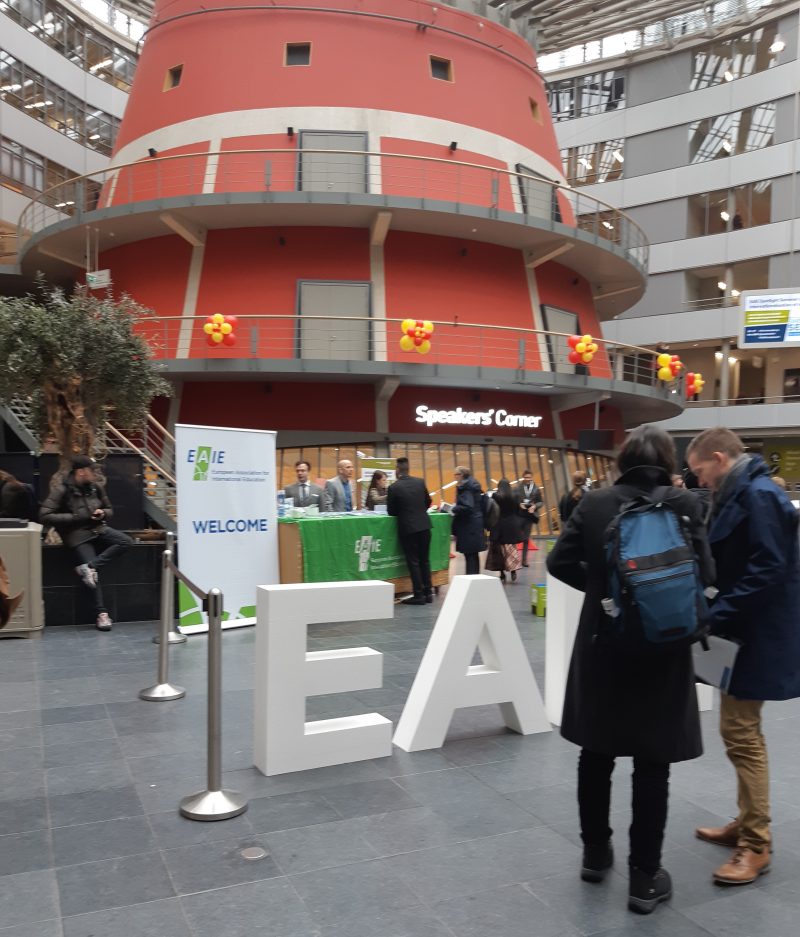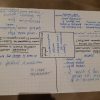Global citizens and culturally agile graduates
By: Emma Hägg, International Coordinator, International Relations Office
In late November I attended an “EAIE spotlight seminar” in the Hague focusing on Internationalisation at Home (IaH), or Internationalisation of the Curriculum (IoC) which is in fact the same. As new in my position in the International Relations office and involved in the IoC-project this seemed like a great opportunity to do a crash course in IaH and to build my network. /Emma Hägg, International Coordinator at the International Relations Office, KI.
Shifting focus from mobility to cultural experiences
The goal in Europe for student mobility is 20% and few are close to the goal. The average for Europe as a total is less than 6%. We have to move from mobility to interculturalisation because everybody is not mobile.
We have to shift focus from growing numbers of mobility to the rest, according to Elspeth Jone, keynote speaker. She referred in her presentation to 10 recommendations on IaH from the EAIE blog.
- IaH is for all. The mobility is additional. IaH is not the second best option…
- Move beyond electives and specialized programmes
- International learning outcomes
- Support the informal curriculum like buddys and social events
- Use cultural diversity in the classroom
- Engage with cultural others in learning environments/situations
- Involving all staff not only the international office
- May or may not include teaching in English – just translating is not the way to go
- Virtual (digital) mobility
- Foster engagement with international students
IaH – purposeful and for all
Early adaptors of IaH (2000) were countries with small languages in Europe (Scandinavia, Netherlands). Most common misconceptions of the concept is that it is only about: teaching in English, a second best alternative to mobility and that international classrooms are a necessity and that is where “it happens”.
The definition of IaH is that it is PURPOSEFUL and for ALL students! Netherlands are beginning to see IaH introduced already in primary school as it provides young people with an important traversal skills. It is important to start early as students that go on exchange have a special mindset. This mindset can in fact also be developed at home outside your comfort zone (Mezirows disorienting dilemma). It is really about preparing students for the uncertain and unpredictable. We should move from international education to “multiperspective” education. Linking local and global. Shorter or other international experiences (COIL – collaborative online international learning) can also be valuable – the important factor is to REFLECT on the learning! Make the intercultural learning EXPLICIT!
Final reflection and take home message: We need cultural agile graduates and global citizens to build the future in an unpredictable world – the university has an important role to play!
Emma
International Coordinator with a great interest for communications and a talent for project management. Employed by Karolinska Institutet since 2004.



0 comments